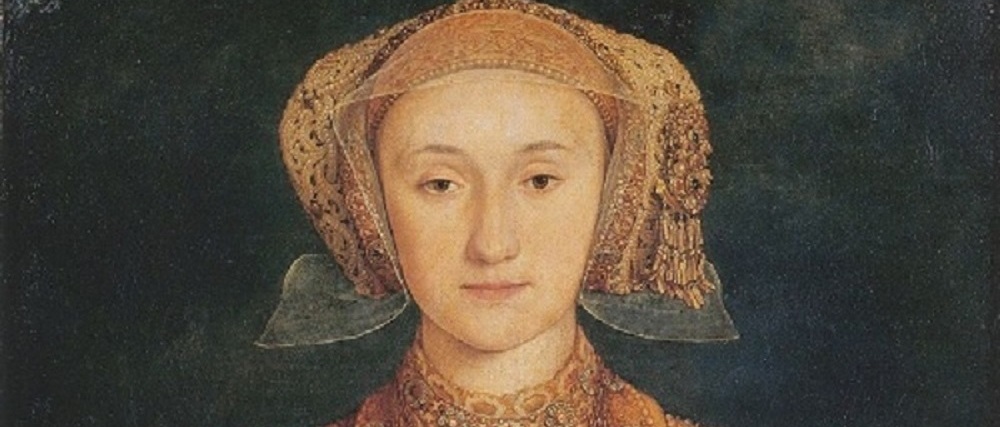Anne of Cleves
Posted on 20th January 2021
Anne of Cleves was born on 22 September 1515 in Dusseldorf, Germany to parents John III, Duke of Cleves and Maria Duchess of Julich–Berg and she grew up in Schloss Burg on the edge of Solingen.
Her character was considered resolute and solemn. She was also known to be gentle, good humoured and considerate. Her virtuous nature made her very naïve in the ways of men and marriage.
She did not have a formal education and was not taught any literature, languages, music or cultural pursuits at all, which were all pleasures that Henry enjoyed and liked to share. Instead Anne was educated in household duties and was excellent at needlework. She was also able to read and write, but only in her native German.
In 1527 at the age of eleven Anne was betrothed to ten year-old Francis, son and heir to the Duke of Lorraine, but this betrothal was later cancelled in 1535.
England had been politically and diplomatically isolated since its break with the Catholic Church and a foreign alliance with another Protestant State was deemed important and Thomas Cromwell, Henry VIIIs chief adviser urged him, though he was still in mourning for the loss of his wife Jane, to marry again to secure this alliance.
Hans Holbein, the Court painter was despatched to take portraits of the three Cleves sisters and Henry on seeing these portraits chose Anne to be his bride.
When Anne arrived in England, Henry was eager to see her, but this did not last long. Upon meeting her for the first time he deemed the portrait to have flattered her greatly and he found her undesirable and possibly even repulsive. If he had not needed a foreign alliance he would have sent her straight back home.
Henry, against his better judgement, reluctantly went ahead with the wedding and they were married on 6 January 1540 in Greenwich, London, but It was not to be a happy marriage.
Henry and Anne struggled to converse as Anne only spoke German and Henrys German was very basic. Their conversation was usually translated through others such as by her ladies-in- waiting, some of whom at least could speak English.
The marriage was never consummated and Henry was already looking for ways to end it before it had even begun.
He found his new wife completely unattractive but Anne being very naïve imagined that the kiss goodnight or the touch of his hand was the normal way for a husband to behave.
At this point in his life, Henry had lost his youthful good looks and was not the attractive, virile man that he had once been, indeed he was now fat and bloated and well past his prime.
Henry wanted to annul his marriage to Anne and this was confirmed on 9 July 1540.
As she had agreed to the divorce she was treated well by Henry and received a generous settlement.
She was to continue to live quietly in the countryside, and remain in the Kings favour, therefore she was allowed to return to Court many times.
She died at Chelsea Old Manor in London in July 1557, aged 41 and is buried in Westminster Abbey.
Tagged as: Junior Tudors
Share this post:





